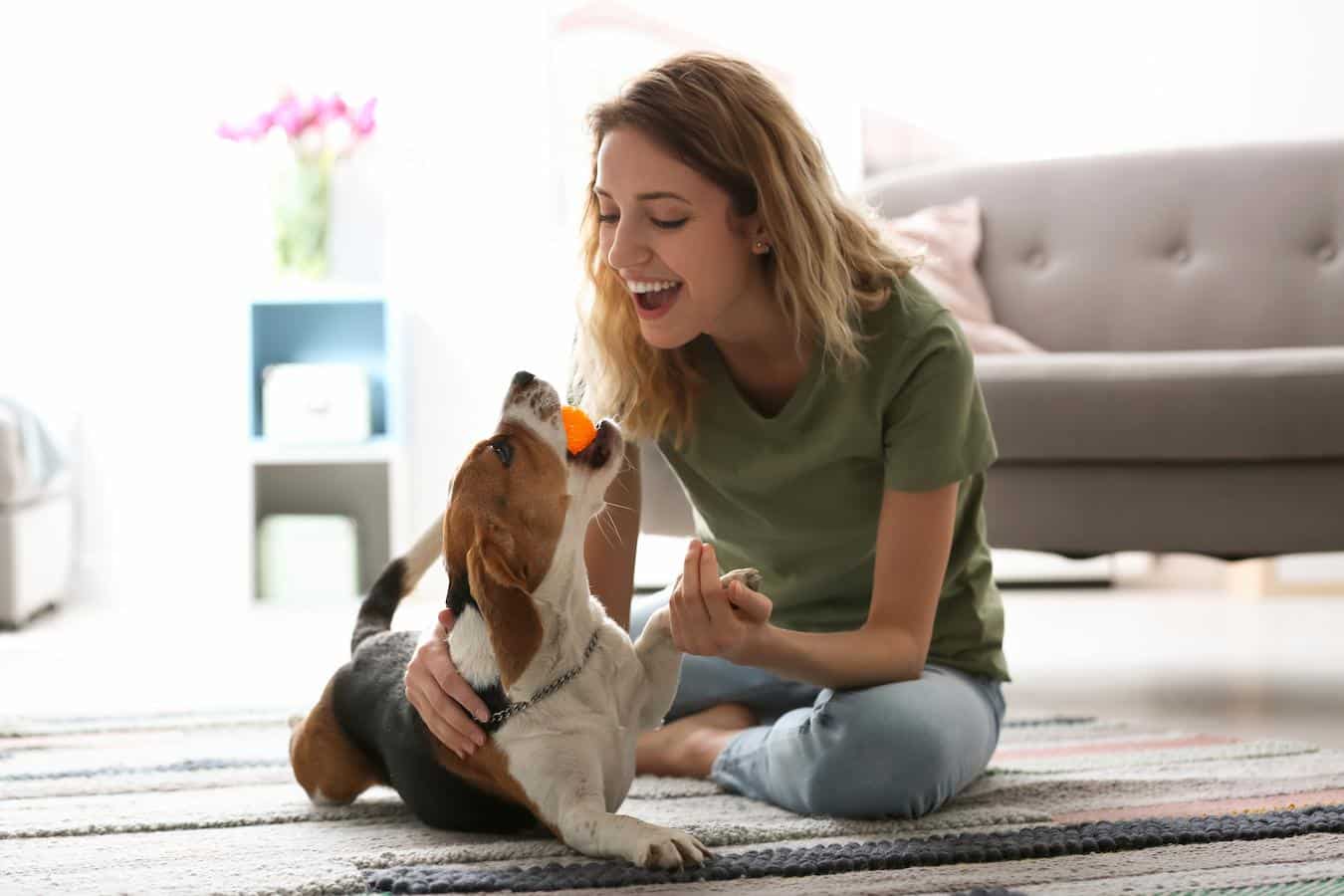Does it seem like your furry friend is shaking way more than he should be? Most of the time, your dog’s quivering is simply due to cold or excitement. Though a bit of enthusiastic trembling is normal for any pup, there are other times that this behavior can signify something more serious.
If you’re curious about your quivering canine companion, keep reading!
Key Takeaways
- Shaking can be a sign of pain in dogs, as this is how they express any discomfort.
- Canines will shake due to various environmental, behavioral, or medical reasons.
- Most likely, your four-legged friend’s trembling is caused by cold, anxiety, or excitement.
- Dogs may shake if they ingest a toxin, are feeling nauseous, or have an underlying medical condition. If you suspect any of these are the case, take your dog to the vet immediately.
See Related: How To Potty Train Your Puppy
Is Shaking a Sign of Pain in Dogs?
Like humans, dogs shake from time to time. Usually, this is not cause for alarm, but it’s a good idea to read up on the potential reasons for their out-of-the-blue quivering.
Shaking can be a sign of pain in dogs. This is common for older dogs with joint pain or arthritis. Pain is usually exhibited through shaking of the hind legs. If you suspect that your canine companion’s trembling is a symptom of something serious, it’s a good idea to take them to the vet right away.
Why Is My Dog Shaking?
Dogs will shake due to behavioral, environmental, or medical reasons. Keep reading, and we’ll cover the eight most common causes.
#1. Anxiety or Fear
Is your furry friend nervous around loud noises or uncomfortable in new environments? If your dog feels unsafe or uneasy, their body will send a surge of adrenaline. As this stimulating hormone floods their system, your pup might start to shake or tremble.
Most of the time, this is nothing to worry about. You can help soothe your distressed dog by helping them manage their stress levels. If your pet’s anxiety is severe, it might be worthwhile to visit a veterinary behaviorist.
Dogs might defecate excessively when they’re nervous or anxious. If you struggle to keep up with your dog’s doos, it might be a good idea to hire a poop-scooping company to do it for you!
#2. Excitement or Happiness
Not all causes of your dog’s shaking are inherently negative! Most likely, your furry friend is trembling out of excitement or happiness. This is a natural reaction that helps the body exert excess energy. If you just returned home after a long day at the office, your pup is likely to start shaking when you walk through the door!
#3. Cold
Dogs shiver and shake in cold weather, just like humans. This is an involuntary response that helps their bodies warm up. Smaller pups or dogs with thin coats are more likely to be affected by colder temperatures.
Bonus: How Hot Is Too Hot For Dogs? Walking Your Dog Safely This Summer
#4. Experiencing Pain
Dogs shake when they are in pain in order to outwardly express their discomfort. Other signs of pain can include a decreased appetite, excessive licking, whining, and other behavioral changes.
#5. Ingested a Toxin
Canines can be poisoned by substances that aren’t necessarily toxic to humans, such as cigarettes, xylitol, and chocolate. Different poisons can have different effects on dogs, but common symptoms include trembling, shaking, or twitching. If you’ve suspected that your pup has ingested a toxic substance, take them to the veterinarian immediately.
#6. A Medical Condition
More likely than not, your furry friend’s trembling is harmless and nothing to be overly concerned about. However, other times, it can be a symptom of something more severe. Certain medical conditions can cause your canine to quiver uncontrollably, such as
- Epilepsy
- Brain or nerve diseases
- Electrolyte disorders
- Infections
- Generalized Tremor Syndrome (GTS)
- Ear infections or ear problems
- Seizure disorders
- Muscle tremors
#7. Distemper
Canine distemper is a highly contagious and potentially deadly viral disease that attacks dogs’ respiratory, gastrointestinal, and nervous systems. This virus can also affect other animals, such as ferrets, foxes, and wolves. Young puppies or unvaccinated dogs are at risk.
Other symptoms of canine distemper include:
- Runny nose
- Coughing
- Fever
- Lethargy and tiredness
- Decreased appetite
- Vomiting
- Eye discharge
If you believe that your canine has contracted distemper, contact your vet immediately.
#8. Nausea
If your pup is feeling unwell, she might start to shake. This is likely to happen if she’s on the verge of vomiting. Other signs that your pup is nauseous include licking of the lips, drooling, or repeated swallowing.
What Should I Do if My Dog Is Shaking?
If you notice your furry friend shaking more than usual, start by assessing the overall situation. If it’s the middle of January and your thermostat is broken, start by warming up your four-legged friend. If there’s the possibility that your dog ingested a foreign or toxic substance, contact your veterinarian immediately.
It’s a good idea to try to identify possible stressors for your pup. A new baby, Fourth of July fireworks, or a new environment are all potential anxiety-inducing situations for your dog.
Final Thoughts
As a devoted and loving pet parent, you only want the best for your four-legged friend! If you notice them quivering more than usual, it’s normal to feel a little concerned. Though it’s likely nothing serious, if you do believe that your pup’s shaking is the result of an underlying illness or toxin, don’t hesitate to take them to the vet right away!
Keep Reading: How To Calculate Your Dog’s Age & Convert To Human Years
Frequently Asked Questions
Should I Be Worried if My Dog Is Shaking?
Most of the time, your dog’s shivering is nothing to be worried about. It’s a common behavior that is often done out of excitement! If your furry friend starts to shake uncharacteristically or develops other symptoms of illness, you should contact your vet right away.
What Breed of Dogs Have Anxiety?
There are a few different types of dog breeds that are more likely to experience anxiety than others. Here are a few:
- German Shepherd
- Australian Shepherd
- Border Collie
- Jack Russell Terrier
- Cavalier King Charles Spaniel
- Bichon Frise
- Toy Poodle
- Labrador Retriever
- Cocker Spaniel
—
Scoop Masters provide professional pet waste removal services across Los Angeles & Ventura County, Dallas, Houston, Austin, Nashville, and Palm Beach, Florida. Since 1988, we’ve saved dog owners across the country from the overly unpleasant task of picking up after their pets. Each poopy project we complete gives them the freedom, convenience, and sanitation they deserve! Contact us for a free quote, or simply stock up on enough dog poop bags to keep your pet’s number twos at bay. To stay in the loop, follow up on Facebook and Twitter/X. If your dog can poop it, we can scoop it!






Trackbacks/Pingbacks